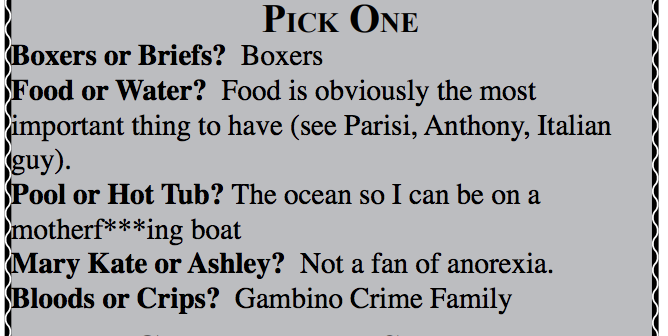
By Eva Schiller (V)
A metapoem is a poem about poetry. The poem, somehow, has crossed the fourth wall and recognized itself as a sequence of words and letters. It can then evaluate itself, and even criticize itself. Think of this article as something of a meta-article: an article about articles. Specifically, an article about the credibility of the Pingry Record. Are we openly and accurately reporting Pingry news, or have we––as my title indicates––gone soft?
Perhaps I should clarify what it means to “go soft.” I define it as ignoring relevant topics for the sole purpose of avoiding controversy and protecting the Pingry ‘brand.’ I should also clarify that the Pingry Record is not, nor has it ever been, an organ of the administration. All content and all editorial decisions come from students and faculty advisors. As Dean Chatterji informed me, “the administration does not provide input into what the Record covers.”
Nonetheless, based on issues from the last fifteen years, the Pingry Record is undeniably more conservative than it used to be. The following are examples of controversial and problematic topics found in old issues, all of which I believe are not appropriate for a 2020 issue.
1. An opinion piece called “The Real Zero Tolerance Policy,” which appears on page three of the January 2003 issue. The article, which is publicly available on the Pingry website, discusses racial issues at Pingry, as well as political correctness and racist politicians. It takes just one quick skim of the article for a modern day reader to spot multiple points of contention. In addition to its subject, the piece includes biting quips about racial inequality, as well as racist statements (written ironically) and uncensored racial slurs. Clearly, this is in no way acceptable for a 2020 issue, nor should it be. However, it certainly demonstrates just how significantly the culture of Pingry, and by extension, the Record, has changed in past years.
In addition to publishing controversial articles, older issues of the Record report a coarser version of Pingry news.
2. The April 2004 issue dedicates a front page headline to the news that “Financial Aid Funds Will Not Meet Students’ Need.” An editorial on page two, and two additional articles on page four further explore the problem and criticize the “moral message… the school [is] sending if qualified applicants cannot attend Pingry due to financial need.”
3. The April 2004 issue also includes a rather harsh letter from former Assistant Headmaster Adam Rohdie, who “…ask[ed] the editors to rethink what is at the core of Pingryʼs Honor Code.”
3. The April 2009 issue includes a student interview featuring expletives and a joke about anorexia (in response to the question: “Mary Kate or Ashley”).
It is important to note that the aforementioned cases are not consistent with every single article and issue published during these years. As Student Body President Brian Li (VI) noted, “the content of the paper ebbs and flows as leadership transitions from year to year.” However, I chose to highlight the most controversial articles because they set the previous limitations of the Pingry Record. Topics that were once considered in bounds are now considered out of bounds, making it difficult to deny that the Record has developed into a “softer” establishment.
This could be due to a number of reasons: cancel culture, increased awareness of diversity and inclusion, and rising political polarity have found their way into Pingry and beyond within the last ten years. As a result, we all have to be more conscious of how our actions affect others, and the Record has come to reflect that. Just this year, the editorial staff took steps to ensure that our opinion remained neutral on difficult topics such as teacher-student relationships. As an editor, I can attest that other hot topics––TikTok Honor Code violations and racial slurs still floating around on campus––are also, by some unspoken rule, not within the bounds of Record material (ironically, in mentioning them, I run the risk of crossing that boundary).
That said, a softer Record is not necessarily a bad thing.
The internet age puts us all in the spotlight, amplifying the impact of small actions that would have gone unnoticed pre-social media. This makes the new decade a difficult time for daring or accusatory articles. A kinder and gentler Record could perhaps indicate that “students are more considerate of the community, and how their words might impact those around them,” Dean Chatterji points out.
Of course, I in no way advocate the curses, racial slurs, and insensitive comments I found in older issues of the Record. However, the candor of the content I cited, despite fostering controversy, did increase its appeal and create a genuine time capsule of the Pingry community. I respect those articles for their openness. At the end of the day, the Record staff has the power to impact the opinions of the Pingry community, and if we can’t discuss hard topics openly, nobody will. Thus, as an editor, I feel it is our responsibility to learn from past articles and recapture their candor, while still retaining a higher level of cultural respect. If we do so tactfully, we could paint a more raw and genuine picture of Pingry.
